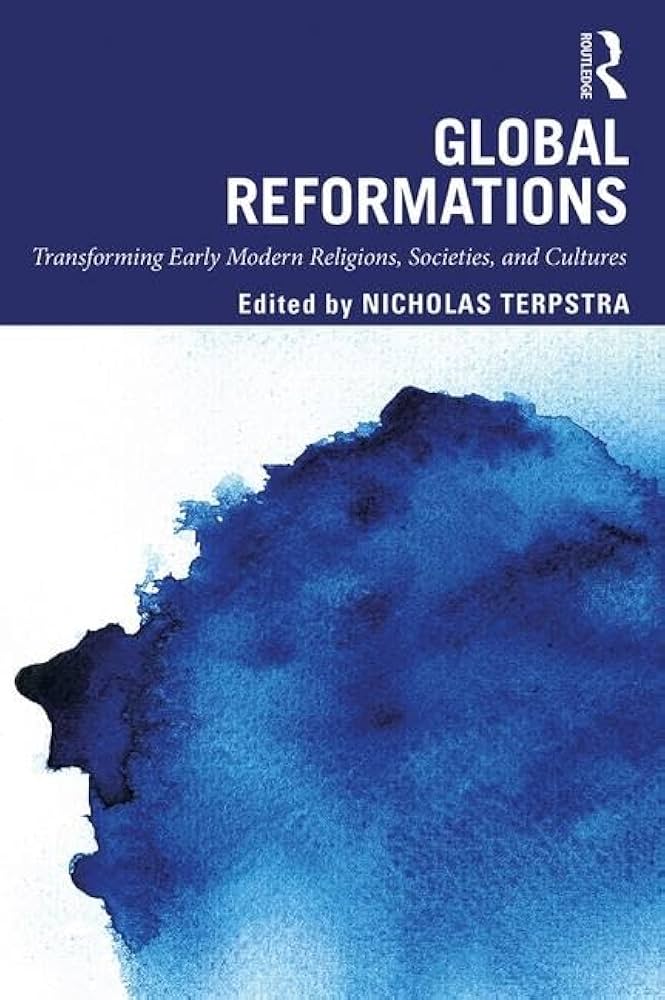Global Reformations: Transforming Early Modern Religions, Societies, and Culture – Nicholas Terpstra (Ed.)

Editor: Nicholas Terpstra
Publisher: Routledge
Year of Publication: 2019
Print Length: 288 pages
Genre: Non-Fiction / Cultural Studies
Area: Bosnia and Herzegovina, Greek, Italy, Japan, Mexico, Philippines, Rome, Spain
Topic: Buddhism, Christianity, Culture & Society, Global System, Islam, Modernity, Modernism, Modern, Religion
Global Reformations offers a sustained, comparative, and interdisciplinary exploration of religious transformations in the early modern world.
The volume explores global developments and tracks the many ways in which Reformation movements shaped relations of Christians with other Christians, and also with Jews, Muslims, Buddhists, and aboriginal groups in the Americas. Contributions explore the negotiations, tensions, and contacts that developed across social, gender, and religious lines in different parts of the globe, focusing on how different convictions about religious reform and approaches to it shaped social action and cross-confessional encounters. The essays explore the convergence of religious reform, global expansion, and governmental consolidation in the early modern world and examine the Reformation as a global phenomenon; the authors ask how a global frame complicates our understanding of what the Reformation itself was and offer a unique and up-to-date examination of the Reformation that broadens readers’ understanding in creative and useful ways.
Demonstrating new research and innovative approaches in the study of cross-cultural contact during the early modern period, this volume is ideal for advanced undergraduates and graduates of early modern history, religious history, women’s & gender studies, and global history.
Table of Contents
List of figures
List of contributors
Acknowledgements
1 Introduction: global reformations: reframing early modern Christianity –Nicholas Terpstra
2 Religious expansion in Islam, Catholicism, and Buddhism– Luke Clossey
Part 1
Conversion, co-existence, and identity
3 Translating Christian martyrdom in Buddhist Japan in the early modern Jesuit mission – Haruko Nawata Ward
4 Gypsies in counter-reformation Rome – Giorgio Caravale
5 “Turning Turke” the Anabaptist way: Muslims, Jews, Christian Spiritualists, and polemical discourse in the Dutch Republic, c. 1570–c. 1630 – Gary K . Waite
Part 2
Spatial and social disciplines
6 Before the Ghetto: spatial logics, ritual
humiliation, and Jewish-Christian relations in early modern Florence – Justine Walden
7 To be a foreigner in early modern Italy. Were there ghettos for non-Catholic Christians? – Stefano Villani
8 Maintaining colonial order: institutional enclosure in Spanish Manila, 1590–1790 – Allison Graham
Part 3
Cultural and religious politics
9 The Renaissance papacy and Catholicization of the “Manichean Heretics”: rethinking the 1459 purge of the Bosnian kingdom – Luka Špoljarić
10 Creole conquests: reformation, representation, and return in early colonial New Spain – Lindsay C. Sidders
11 An Embattled Catholic Archbishop between Latins and Greeks in the Ottoman Aegean – Andrew P. McCormick
Part 4
Life across boundaries
12 Reforming birth in early colonial Mexico, or, did Mexican women really have a counter-reformation? – Jacqueline Holler
13 The Venetian Jewish household as a multireligious community in early modern Italy – Federica Francesconi
14 Exile identity and the Pietist reform movement: constructing the Georgia Salzburgers from Alpine Crypto-Protestants – Christine Marie Koch
Index

Nicholas Terpstra is Professor of History at the University of Toronto. His research lies at the intersection of politics, religion, gender, and charity, with a focus on issues dealing with poverty, institutional structures of charity, and urban space & the senses in Renaissance Italy. Recent books include Lost Girls: Sex & Death in Renaissance Florence (2010), Cultures of Charity: Women, Politics, and the Reform of Poor Relief in Renaissance Italy (2013), Religious Refugees of the Early Modern World (2015), and Mapping Space, Sense, and Movement in Florence (2016). He has held visiting professor positions at various universities and at Villa I Tatti. From 2012-17, he was Editor of Renaissance Quarterly.
Source: https://itatti.harvard.edu/people/nicholas-terpstra
More from Nicholas Terpstra in this library, click here.
